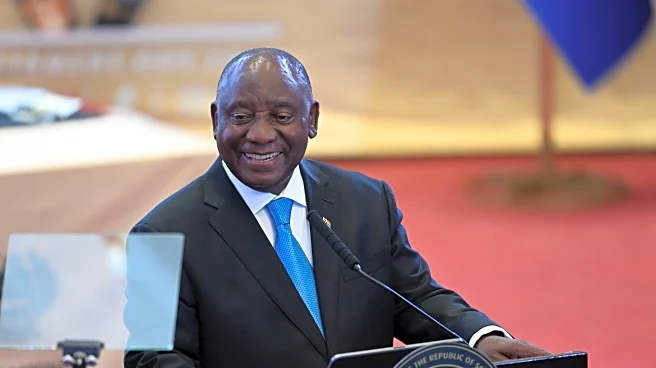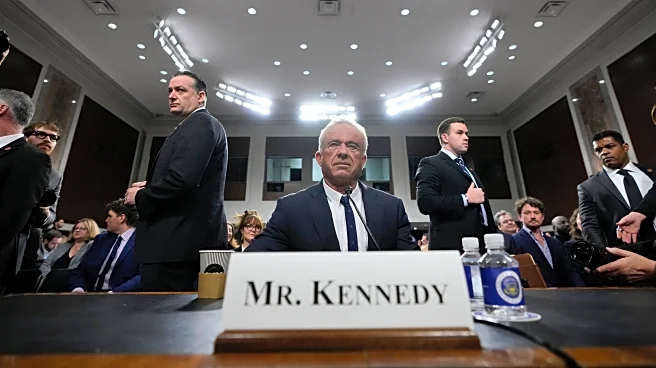What's Happening?
An Israeli airstrike in Gaza City targeted and killed four Hamas operatives just before Israel's cabinet was set to approve a ceasefire deal with Hamas. Palestinian sources reported that dozens were killed or wounded in the strike, which hit a residential building. The attack aimed to eliminate two Hamas operatives present at the site. Hamas leader Khalil al-Hayya, who led the group's delegation to the ceasefire talks, confirmed the organization's receipt of guarantees for the war's end.
Why It's Important?
The airstrike highlights the ongoing tensions and challenges in achieving a lasting ceasefire between Israel and Hamas. Despite the agreement, incidents like this underscore the fragile nature of peace efforts and the potential for renewed conflict. The strike may impact the implementation of the ceasefire deal and complicate diplomatic efforts to maintain stability in the region. The situation reflects the complexities of negotiating peace in a volatile environment, where trust and compliance are critical to success.
What's Next?
The Israeli cabinet is expected to convene to approve the ceasefire and hostage deal with Hamas. The focus will be on ensuring the implementation of the agreement and addressing any obstacles that may arise. International stakeholders will likely continue their diplomatic efforts to support the peace process and monitor the situation closely. The success of the ceasefire will depend on the commitment of both parties to uphold the terms of the agreement and prevent further violence.
Beyond the Headlines
The airstrike and subsequent ceasefire approval could have broader implications for regional politics and the peace process. The incident may influence public perception and political dynamics within Israel and Gaza, potentially affecting future negotiations. The fragile nature of the ceasefire underscores the importance of international mediation and support in achieving lasting peace. The situation highlights the need for continued dialogue and cooperation to address underlying issues and build trust between conflicting parties.










